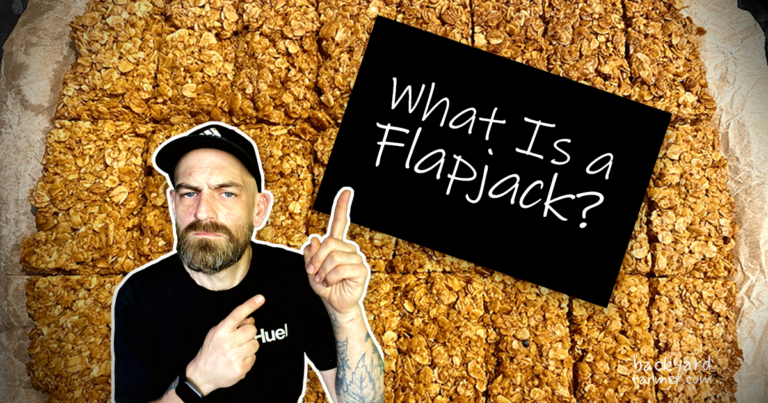Introduction
So, what is a flapjack? Your first thought might be of pancakes drenched in syrup. However, in the UK, they are a chewy oat bar—a treat that’s completely different from its American counterpart. With its versatility and rich history, the British flapjack has firmly secured its place as a household favorite.
But they are more than just a sweet snack. Flapjacks blend history and tradition, inspired by early oat-based snacks that sustained ancient communities, evolving into the iconic treat cherished in British kitchens today.
Over the years, this British treat has adapted to changing tastes, transforming from traditional recipes into modern gluten-free and vegan variations. In this article, we’ll explore everything you need to know:
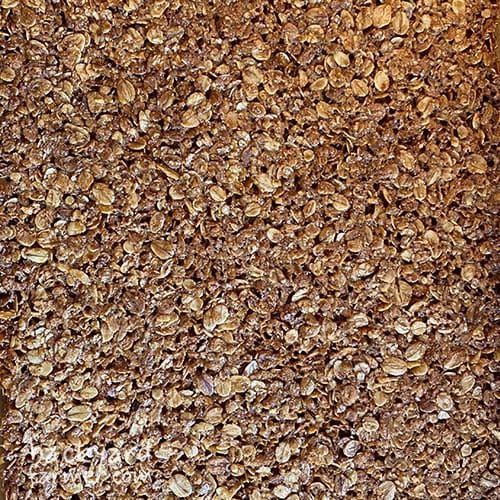
- Their origins and historical context
- The etymology and how the name “flapjack” evolved
- The differences between British flapjacks and American pancakes
- Why they remain a beloved treat across generations
Whether you’re a history enthusiast, a food lover, or just someone craving a tasty snack, this article will dive into the fascinating story behind the flapjack.
If you’re reading from the U.S. and wondering what a British flapjack really is, this guide breaks down the differences and origins of both versions.
What Is a Flapjack? Origins of a British Classic
A flapjack is a traditional British traybake made from rolled oats, butter, sugar, and golden syrup. It’s baked until golden and chewy, often cut into squares or bars. Some people even call them a “flapjack cake” because they’re baked in one tray like a cake, cooled, and then cut into squares or bars.
Not to be confused with American-style flapjacks (pancakes), British flapjacks are more like an oaty snack bar — sometimes enhanced with fruit, nuts, or chocolate chips for variation.
They’re easy to make, naturally vegetarian, and have been a favourite lunchbox filler and teatime treat for generations.
Why Is It Called a Flapjack? A Name with History
The word “flapjack” has a long, winding history — and its meaning has changed over the centuries.
- In medieval England, “flapjack” referred to any flat cake baked on a griddle or in a pan. “Flap” meant to flip or turn in the pan, and “jack” was a generic term for a common man’s food.
- By the 17th century, it had come to mean a fruit tart or flat pie.
- The modern British flapjack — an oat bar made with golden syrup and butter — didn’t appear until the early 20th century, but the name stuck.
💬 So the next time you bite into an oaty bar, remember: you’re enjoying a name that’s over 500 years old!
Continue your British baking & recipes journey
- Best Flapjack Recipe UK – A simple, traditional recipe for making classic British flapjacks at home
- Healthy Flapjack Recipe UK – A lighter, healthier take on flapjacks without sacrificing flavour
- How to Make One Jar of Jam in 30 Minutes – An easy homemade jam guide that pairs perfectly with traditional baking
Etymology of Flapjack, What Does it Mean?
The word “flapjack” has an intriguing history that dates back to 16th-century England, where it initially described flat cakes, pancakes or tarts rather than the chewy oat bars we know today. With the meaning evolving significantly over the centuries.
The term “flap” probably referred to the flipping motion involved in cooking flat cakes or pancakes, while “jack” was a common English suffix used for something small or familiar.
Together, “flapjack” described a simple, comforting dish, quickly becoming a familiar name for these flat creations.
The Pancake vs. Oat Bar Connection
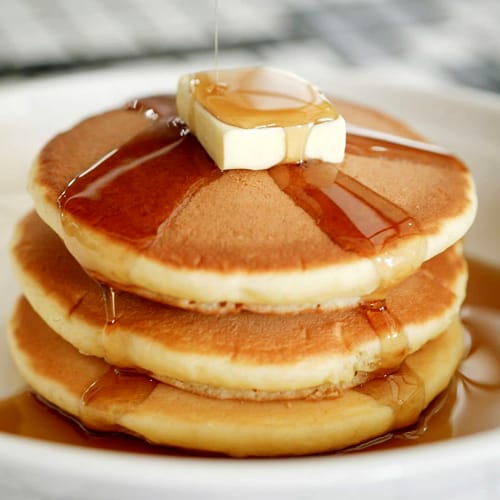
What Does Flapjack Mean in America? In the U.S, a flapjack typically refers to a pancake — light, fluffy, and served for breakfast with syrup. In contrast, the British flapjack is a baked oat bar made with golden syrup, oats, and butter. So, if you’re an American trying a British recipe, expect something closer to a chewy granola bar than a pancake.
This divergence highlights how the same word can evolve in different cultural contexts, taking on new identities while retaining its core essence.
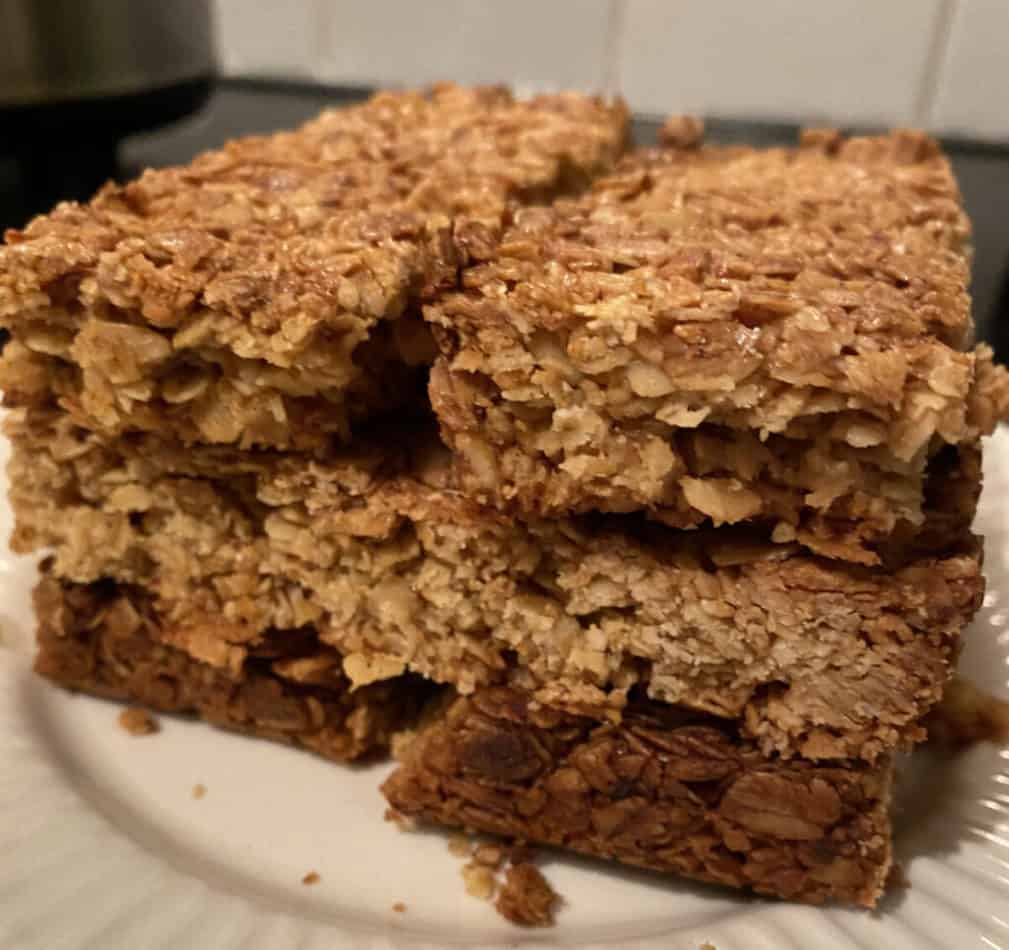
Oat Bars in the UK – In Britain, the name “flapjack” held onto its roots but shifted to represent something unique – the oat bar. In Britain, these baked treats are made with oats, butter, golden syrup, and sugar. They quickly became a household staple, redefining what “flapjack” means today. Get your copy of the British flapjack recipe below 👇
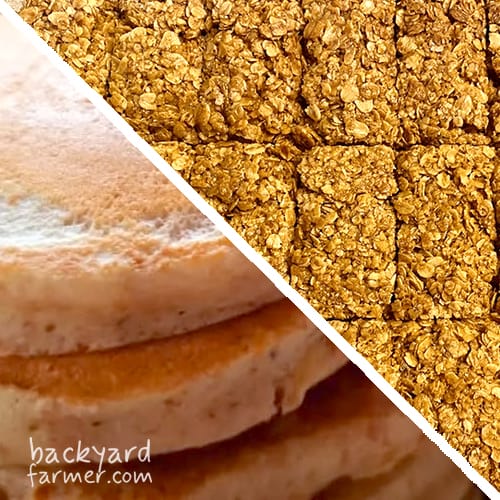
A Symbol of Adaptation
The evolution of the word mirrors the journey of food and language itself. From flat tarts to chewy oat bars, the term has evolved with cultural changes, all while retaining its comforting and nostalgic appeal. Today, whether you’re referring to fluffy pancakes in North America or chewy oat bars in the UK, “flapjack” continues to reflect comfort, tradition, and the adaptability of food culture.
The History of Flapjacks
Oat bars boast a rich and layered history, spanning centuries and adapting to ever-changing tastes and traditions. Their journey—from ancient Roman origins to modern-day adaptations—is as delightful as the treat itself. From their practical beginnings as energy-packed snacks to their place as a beloved British staple, flapjacks have traveled a fascinating journey through time.
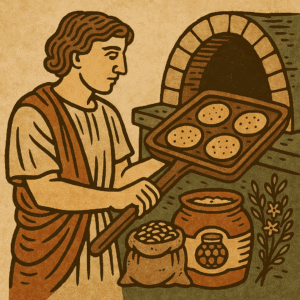
Ancient Beginnings
The origins of Oat bars trace back to the Roman Empire. Although these weren’t the chewy oat bars we enjoy today, early oat cakes made with oats, honey, and nuts provided durable and portable sustenance for long journeys.
These early oat cakes were prized for their nutritional value and long shelf life. Cooked on hot stones or basic grills, they were essential for fueling armies on the move.

The 16th Century Rise
By the 16th century, the term “flapjack” was being used in British kitchens to describe flat cakes or tarts, quite different from the oat bars we know today.
While they weren’t the chewy oat bars we recognize today, they represented a transition to sweet, comforting treats enjoyed by both the wealthy and working classes.
Shakespeare even referenced this British treat in his play Pericles, Prince of Tyre, underscoring their role in everyday life.
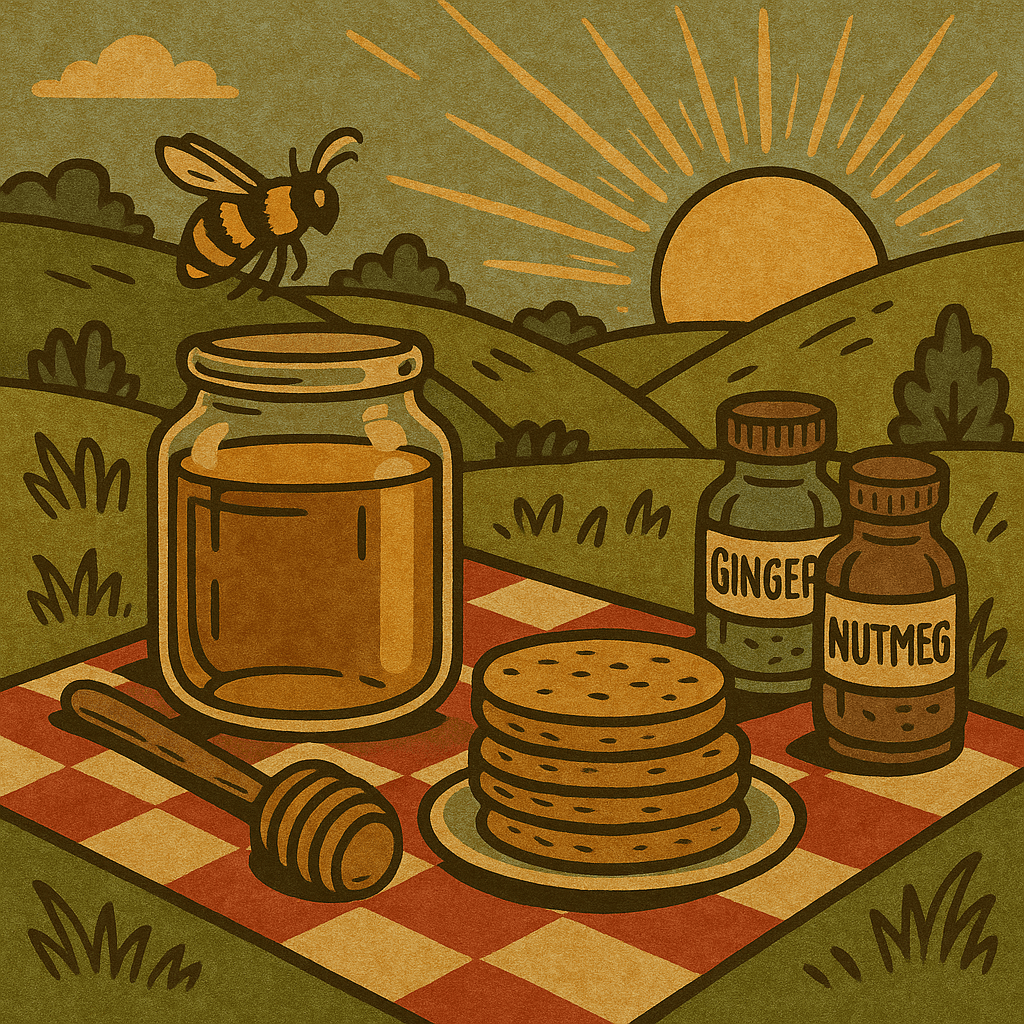
Regional Adaptations
As this British treat gained popularity, regional variations began to emerge:
- Welsh Honey: Enhanced with locally produced honey for a rich, sticky texture.
- Northern English Spices: Incorporating warm spices like ginger and nutmeg, reflecting the region’s connection to the spice trade.
These regional twists added unique flavors and helped establish flapjacks as a cherished part of British culinary traditions.
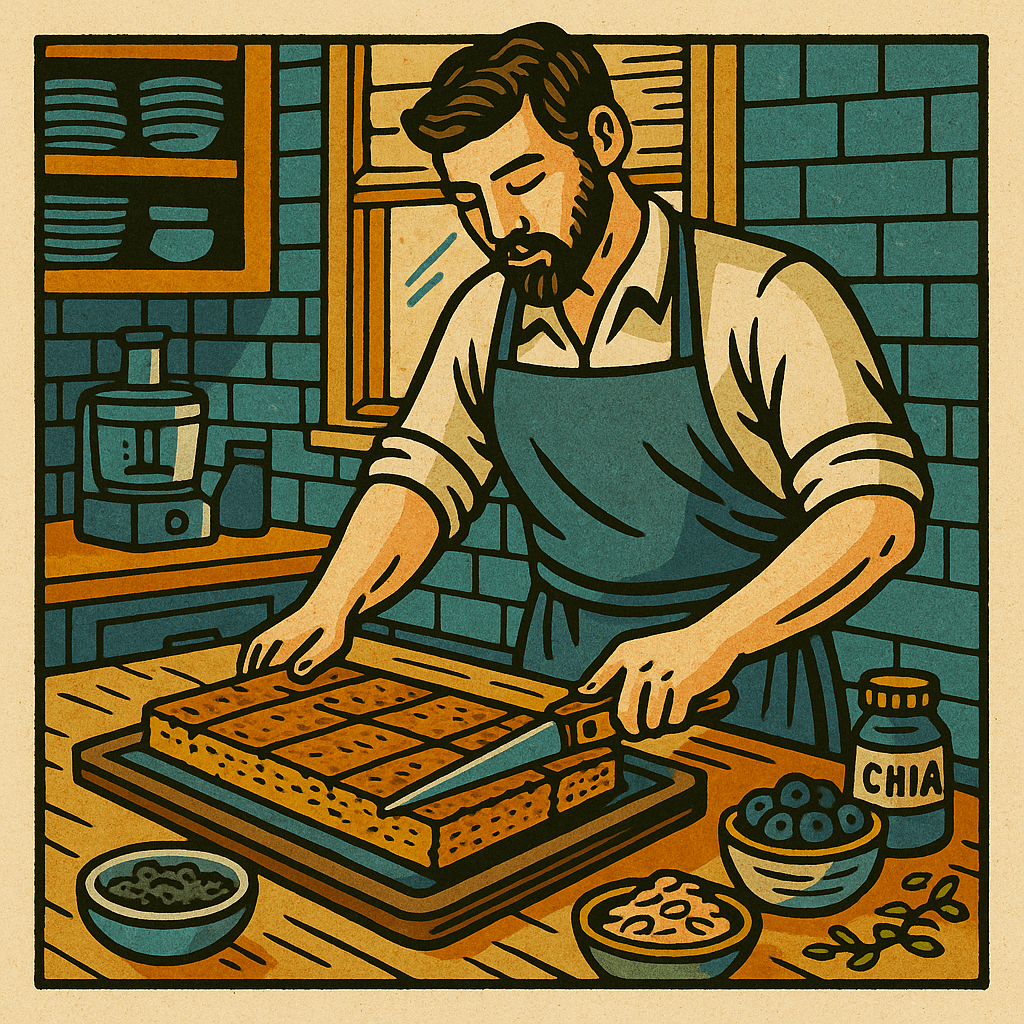
Modern Evolution
Today, flapjacks perfectly blend tradition with modern innovation. From traditional recipes to gluten-free, vegan, and superfood-enhanced versions, oat bars have evolved to meet modern tastes.
The history of flapjacks serves as a testament to their timeless appeal. Whether they were fueling Roman soldiers, appearing in Shakespeare’s plays, or serving as a quick snack today, flapjacks continue to offer comfort and joy to those who savor them.
To dive deeper into the rich history of British desserts, visit this fascinating article on the history of British desserts by the BBC.
Flapjacks in British Food Culture and Beyond
British flapjacks are much more than a snack. These chewy, golden oat bars seamlessly blend simplicity with versatility, making them a beloved staple throughout the UK. But what exactly makes a British flapjack so special, and how does it stand out from its international counterparts?
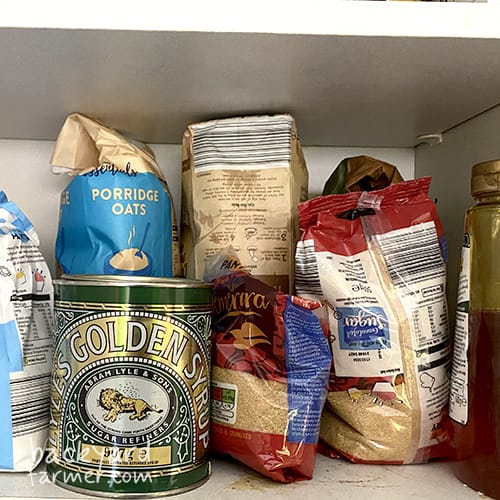
Key Ingredients
The magic of a British flapjack lies in its simple yet flavorful ingredients:
- Oats: The star of the show, providing a hearty texture and a nutty flavor.
- Butter: Adds richness and helps bind the ingredients.
- Golden Syrup or Honey: The signature sweetener that gives flapjacks their chewy, slightly caramelized character.
- Sugar: Often brown sugar, for an extra depth of flavor.
These straightforward ingredients combine to create the perfect balance of sweetness, chewiness, and buttery richness—the hallmark of a classic British flapjack.
The Preparation Process
The process of making flapjacks is refreshingly simple:
- Combine the ingredients in a saucepan until melted and well-mixed.
- Press the mixture into a baking tray, ensuring an even thickness.
- Bake until golden, then allow to cool before slicing into bars or squares.
Flapjack Cooking Time Tip: The ideal flapjack cooking time is about 20–25 minutes at 180°C/350°F. Bake closer to 20 minutes if you prefer soft, chewy oat bars, or leave them in until 25 minutes for a firmer, crispier texture. Always let them cool in the tray so they set properly before slicing.
This easy-to-follow method is one reason flapjacks are so popular—they’re simple to make, even for beginner bakers. For a full guide to making Flapjacks, check out this article here.
How They’re Different From Pancakes
Unlike North American “flapjacks” (the fluffy pancakes cooked on a griddle), British flapjacks are hearty oat bars baked to perfection. Their texture is chewy rather than airy, and their rich, buttery flavor sets them apart as a distinctly British treat.
Why They’re So Loved
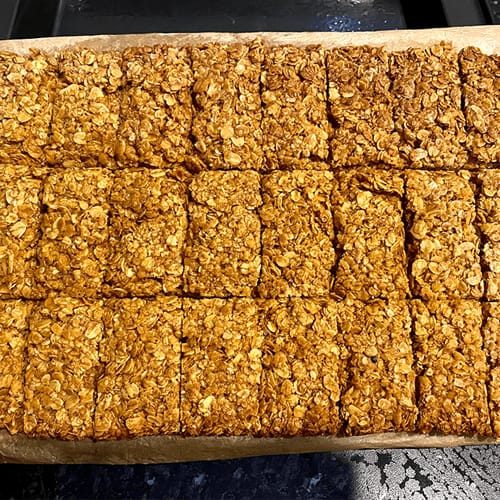
A British flapjack is more than just a treat – it’s a slice of tradition that brings warmth and comfort with every bite. Flapjacks have earned a special place in British hearts for several reasons:
- Convenience: They’re quick to make using basic pantry staples.
- Versatility: You can customize them with dried fruits, nuts, or chocolate to match your taste.
- Nostalgia: For many, flapjacks evoke warm memories of homemade treats and cozy afternoons.
The Modern Flapjack: A Classic with a Twist
Flapjacks have evolved significantly from their humble beginnings, adapting to modern dietary trends and individual preferences. While the classic recipe of oats, butter, syrup, and sugar remains a favorite, innovative twists continue to give this timeless treat a fresh appeal.
Healthier Options
Modern flapjacks appeal to health-conscious eaters by introducing creative recipes that balance indulgence with nutrition:
- Gluten-Free Flapjacks: Made with certified gluten-free oats, ensuring those with celiac disease or gluten sensitivity can enjoy them.
- Vegan Flapjacks: Replace butter with coconut oil or dairy-free margarine and use plant-based sweeteners like maple syrup.
- Low-Sugar Flapjacks: Opt for natural alternatives like agave syrup, date syrup, or reduced amounts of traditional syrup to maintain a good binding consistency.
If you’re looking to give flapjacks a healthier twist, check out our guide on how to make healthy flapjacks for nutritious ideas!
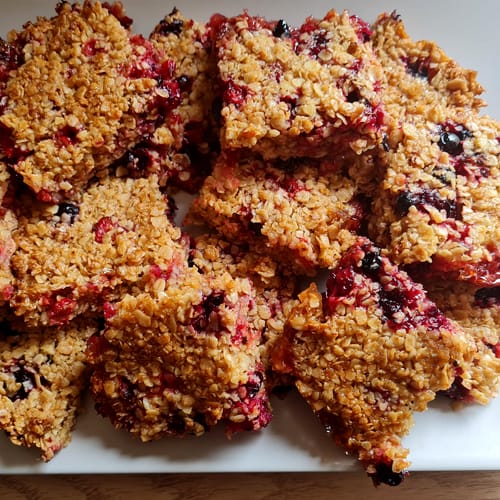
Superfood Infusions
Many modern recipes incorporate superfoods to provide a nutritional boost:
- Chia Seeds and Flaxseeds: Add a dose of omega-3 fatty acids and fiber.
- Nuts and Seeds: Almonds, walnuts, sunflower seeds, or pumpkin seeds enhance texture and provide protein.
- Dried Fruits: Apricots, cranberries, or raisins add natural sweetness and a chewy bite.
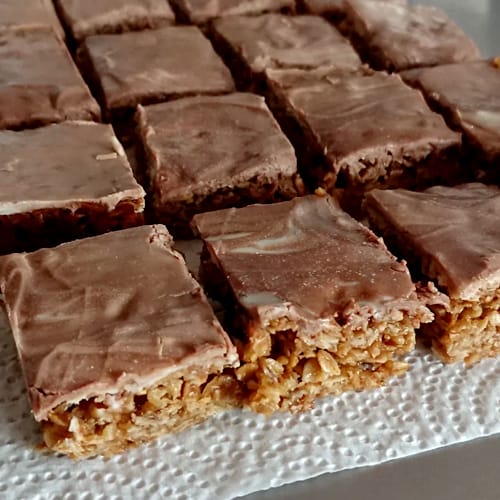
Gourmet Twists
For those who crave something more indulgent, gourmet variations have gained popularity:
- Chocolate Drizzle: A layer of dark or milk chocolate adds a rich finishing touch.
- Salted Caramel: Combines sweet and salty flavors for a modern indulgence.
- Spiced Flapjacks: Infuse the mix with cinnamon, nutmeg, or cardamom for a warm, aromatic twist.
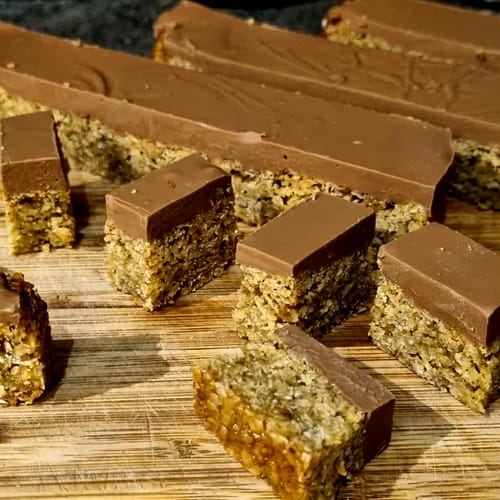
Customized Creations
Flapjacks continue to be a favorite because of their adaptability, allowing home bakers to customize them to their liking:
- Add a handful of shredded coconut for a tropical vibe.
- Experiment with different sweeteners like agave or date syrup.
- Mix in unconventional ingredients like peanut butter or matcha powder for unique flavors.
Recipe Variations for Every Taste
- Gluten-Free Flapjacks: Swap in certified gluten-free oats and check syrups or flavorings. That way, your gf flapjack recipe stays safe and tastes just as good as the original.
- Butter Alternatives: If you’re dairy-free, you can easily bake flapjacks with oil instead of butter. Coconut oil adds a gentle tropical flavor, while vegetable or sunflower oil keeps the taste neutral.
- Honey-Sweetened Options: For a lighter and more natural twist, try healthy flapjacks with honey. Honey creates a delicious stickiness and brings out the oats’ nutty flavor.
👉 Want more inspiration? Explore our healthy flapjacks guide for nutritious twists.
Flapjacks Around the World
As flapjacks grow in worldwide popularity, their recipes continue to evolve, reflecting diverse tastes and cultural influences:
- In the US, people often mistake them for pancakes, but more are starting to recognize them as a British oat bar.
- In Europe, variations incorporate local ingredients like hazelnuts or honey from regional beekeepers.
Modern flapjacks show how traditional recipes can adapt by embracing innovation while staying true to their comforting roots. Whether you’re craving a healthier snack or a luxurious treat, there’s a flapjack variation to suit every taste and occasion.
In the United States, British-style flapjacks are gaining recognition among expat and foodie communities. You can now find them at select bakeries or specialty stores that stock British goods — or order online from shops like British Corner Shop or Amazon US.
Flapjack FAQs: Common Questions Answered
Flapjacks are a beloved British treat that often spark some interesting questions. Here are answers to some of the most common queries about these oat-filled delights.
A British flapjack combines oats, butter, sugar, and golden syrup to create a chewy oat bar. On the other hand, in North America, a “flapjack” refers to a fluffy pancake cooked on a griddle. The two share a name but are entirely different foods.
Flapjacks can be a wholesome snack, particularly when prepared with oats, natural sweeteners, and nutrient-packed add-ins. However, the high sugar and syrup content in traditional recipes means you should enjoy them in moderation. For a healthier twist, try low-sugar or superfood-infused versions.
Yes! By using certified gluten-free oats and ensuring that other ingredients, like syrup and butter, are gluten-free, you can easily make flapjacks suitable for those with gluten sensitivities.
To keep flapjacks fresh, place them in an airtight container and store them at room temperature for up to a week. For longer storage, they can be frozen for up to three months. Simply wrap individual portions in cling film or foil before freezing to maintain their freshness.
Flapjacks are incredibly versatile, allowing you to customize them with ingredients like:
– Dried fruits (e.g., raisins, cranberries) for added sweetness.
– Nuts and seeds for crunch and nutrition.
– Chocolate chips or drizzled toppings for indulgence.
The name “flapjack” dates back to 16th-century England, where it originally described flat cakes or tarts. Over time, the name evolved in the UK to describe the oat bars we know today, while in North America, it became associated with pancakes.
Absolutely! You can substitute butter with plant-based alternatives like coconut oil or dairy-free margarine, and swap honey for maple syrup or agave.
Making flapjacks is simple:
– Melt butter, sugar, and syrup in a pan until well combined.
– Stir in the oats, ensuring they are fully coated.
– Spread the mixture evenly into a baking tray and bake until golden brown.
– Let them cool completely before slicing into bars and enjoying!
Yes, particularly in the UK. For centuries, flapjacks have been a cherished part of British culinary heritage, featuring in historical texts and evolving with regional influences.
If you’ve got more questions or would like to share your favorite twist on the classic flapjack, feel free to get in touch!
Both! In the UK, a flapjack is a chewy oat bar. In North America, “flapjack” is an old-fashioned term for a pancake — usually used in rural or Southern dialects.
Flapjacks are typically baked with oats, butter, and golden syrup — soft and chewy. Granola bars are often pressed and refrigerated, usually include puffed rice or nuts, and are sometimes crunchy.
“Flapjack” has more charm — and it reflects the food’s history. Plus, the term is deeply tied to British baking tradition.
In the UK, you’ll find flapjacks in supermarkets, bakeries, and coffee shops. If you’re abroad and searching “flapjacks near me,” check local specialty stores or online shops. Of course, baking your own at home guarantees the freshest, most satisfying flapjacks.
The average flapjack cooking time is 20–25 minutes. Bake for less if you want chewy oat bars, or longer for a crunchy edge. Always let them cool in the tray to set fully before cutting.
Yes! A gf flapjack recipe is easy. Just use gluten-free oats and check syrups or sweeteners for certification. You’ll get the same chewy, golden bars as the classic version.
Absolutely. You can prepare flapjacks with oil instead of butter. Coconut oil brings a subtle flavor, while sunflower or rapeseed oil gives a clean, neutral taste.
Making healthy flapjacks with honey adds natural sweetness and a slightly different texture. They’re still a treat, but honey can feel lighter compared to traditional golden syrup.
Conclusion: More Than Just a Snack
Flapjacks are more than just a delicious snack; they represent a unique blend of history, culture, and culinary creativity. From their humble origins as simple oat cakes designed for sustenance to their modern adaptations catering to diverse tastes and diets, flapjacks have truly stood the test of time.
Why Flapjacks Are Special
- A Nostalgic Treat: For many, flapjacks evoke warm memories of childhood and family traditions.
- Quick and Easy: Ideal for a speedy snack or an effortless homemade treat.
- Endlessly Versatile: Customize them with dried fruits, nuts, seeds, or even a drizzle of chocolate for your own unique twist.
A Snack With a Story
Flapjacks aren’t just a snack; they’re a treasured part of British tradition. Their simple ingredients and satisfying flavors connect generations, making them a symbol of comfort and culinary heritage.
For more inspiration, check out our Healthy Flapjack Recipe UK.
Try It Yourself
Why not try making your own flapjacks? It’s easy and enjoyable! Experiment with various ingredients to craft a version that’s uniquely yours. Share them with friends, family, or just treat yourself to the joy of this chewy, buttery classic.
Flapjacks are more than just a treat—they’re a timeless testament to the charm of British oat bars, celebrated for their simplicity and shared with love.

